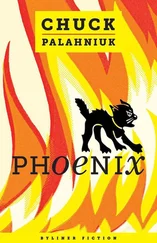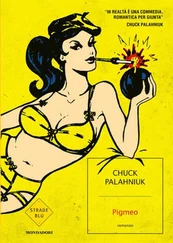Chuck Palahniuk - Diary
Здесь есть возможность читать онлайн «Chuck Palahniuk - Diary» весь текст электронной книги совершенно бесплатно (целиком полную версию без сокращений). В некоторых случаях можно слушать аудио, скачать через торрент в формате fb2 и присутствует краткое содержание. Жанр: Современная проза, на английском языке. Описание произведения, (предисловие) а так же отзывы посетителей доступны на портале библиотеки ЛибКат.
- Название:Diary
- Автор:
- Жанр:
- Год:неизвестен
- ISBN:нет данных
- Рейтинг книги:5 / 5. Голосов: 1
-
Избранное:Добавить в избранное
- Отзывы:
-
Ваша оценка:
- 100
- 1
- 2
- 3
- 4
- 5
Diary: краткое содержание, описание и аннотация
Предлагаем к чтению аннотацию, описание, краткое содержание или предисловие (зависит от того, что написал сам автор книги «Diary»). Если вы не нашли необходимую информацию о книге — напишите в комментариях, мы постараемся отыскать её.
Diary — читать онлайн бесплатно полную книгу (весь текст) целиком
Ниже представлен текст книги, разбитый по страницам. Система сохранения места последней прочитанной страницы, позволяет с удобством читать онлайн бесплатно книгу «Diary», без необходимости каждый раз заново искать на чём Вы остановились. Поставьте закладку, и сможете в любой момент перейти на страницу, на которой закончили чтение.
Интервал:
Закладка:
If you’re here, you’ve failed again. It’s signed Constance .
The handwriting cupped and spread, loving and nurturing, all of it’s her handwriting. In this place Misty’s never been before, but where she ends up, again and again. It’s then she hears the sirens, long and far way. And the deputy says, “I’ll be back to check on you in a little.” The deputy steps out and locks the door.
There’s a window high up in one wall, too high for Misty to reach, but it must face the ocean and Waytansea Island.
In the flickering orange light from the window, the dancing light and shadow on the concrete wall opposite the window, in this light Misty knows everything Maura knew. Everything Constance knew. Misty knows how they’ve all been fooled. The same way she knew how to paint the mural. The way Plato says we already know everything, we just need to remember it. What Carl Jung calls the universal subconscious. Misty remembers.
The way the camera obscura focuses an image on a canvas, how the box camera works, the little cell window projects a mess of orange and yellow, flames and shadows in a shape on the far wall. All you can hear are the sirens, all you can see are the flames.
It’s the Waytansea Hotel on fire. Grace and Harrow and Tabbi inside.
Can you feel this?
We were here. We are here. We will always be here.
And we’ve failed again.
September 3— The First-Quarter Moon
OUT ON WAYTANSEA POINT, Misty parks the car. Tabbi sits beside her, each of Tabbi’s arms wrapped around an urn. Her grandparents. Your parents. Grace and Harrow.
Sitting next to her daughter in the front seat of the old Buick, Misty rests a hand on Tabbi’s knee and says, “Honey?”
And Tabbi turns to look at her mother.
Misty says, “I’ve decided to legally change our names.” Misty says, “Tabbi, I need to tell people what really happened.” Misty squeezes Tabbi’s skinny knee, her white stockings sliding over her kneecap, and Misty says, “We can go live with your grandma in Tecumseh Lake.”
Really, they could go live anywhere now. They’re rich again. Grace and Harrow, and all the village old people, they left millions in life insurance. Millions and millions, tax free and safe in the bank. Drawing enough interest to keep them safe for another eighty years.
Detective Stilton’s search dog, two days after the fire, the dog dug into the mountain of carbonized wood. The first three stories of the hotel gutted to the stone walls. The concrete turned to green-blue glass by the heat. What the dog smelled, cloves or coffee, led rescue workers to Stilton, dead in the basement below the lobby. The dog, shaking and peeing, his name is Rusty.
The images are worldwide. The bodies spread out on the street in front of the hotel. The charred corpses, black and crusted, cracked and showing the meat cooked inside, wet and red. In every shot, every camera angle, there’s a corporate logo.
Every second of video shows the blackened skeletons laid out in the parking lot. A total of one hundred and thirty-two so far, and above them, over them, somewhere in the frame, you see some corporate name. Some slogan or smiling mascot. A cartoon tiger. A vague, upbeat motto.
“Bonner & Mills—When You’re Ready to Stop Starting Over.”
“Mewtworx—Where Progress Is Not Staying in One Place.”
What you don’t understand, you can make mean anything.
Some island car silk-screened with an advertisement is parked in every news shot. Some piece of paper trash, a cup or napkin is printed with a corporate name. You can read a billboard. Islanders are wearing their lapel buttons or T-shirts, doing television interviews with the twisted smoking bodies in the background. Now the financial services and cable television networks and drug companies are paying fat kill fees to buy back all their advertising. To erase their names from the island.
Add this money to the insurance, and Waytansea Island is richer than it’s ever been.
Sitting in the Buick, Tabbi looks at her mother. She looks at the urns she holds in the crook of each arm. Her zygomatic major pulls her lips toward each ear. Tabbi’s cheeks swell up to lift her bottom eyelids just a little. With her arms hugging the ashes of Grace and Harrow, she’s her own little Mona Lisa. Smiling and ancient, Tabbi says, “If you tell, then I tell.”
Misty’s artwork. Her child.
Misty says, “What will you tell?”
Still smiling, Tabbi says, “I set fire to their clothes. Granmy and Granby Wilmot taught me how, and I set them on fire.” She says, “They taped my eyes so I wouldn’t see, so I’d get out.”
In the bits of news video that survive, all you can see is the smoke rolling out of the lobby doors. This is moments after the mural was unveiled. The firemen rush in and don’t come out. None of the police or guests come out. Every second of the time stamp on the video, the fire is bigger, the flames whipping orange rags out of the windows. A police officer crawls across the porch to peek in the window. He stoops there, looking inside. Then he stands. The smoke blowing him in the face, the flames blowtorching his clothes and hair, he steps over the windowsill. Not blinking. Not flinching. His face and hands on fire. The police officer smiles at what he sees inside and walks toward it without looking back.
The official story is the dining room fireplace caused it. The hotel’s policy that the fire always had to burn, no matter how warm the weather, that’s how the fire started. People died a step away from open windows. Their dead bodies found an arm’s length away from exit doors. Dead, they were found creeping, crawling, crowding toward the wall in the dining room where the mural burned. Toward the center of the fire. Whatever the policeman saw through the porch window.
No one even tried to escape.
Tabbi says, “When my father asked me to run away with him, I told Granmy.” She says, “I saved us. I saved the future of the whole island.”
Looking out the car window to the ocean, not looking at her mother, Tabbi says, “So if you tell anyone,” she says, “I’ll go to jail.” She says, “I’m very proud of what I did, Mother.” She looks at the ocean, her eyes following the curve of the coastline, back to the village and the black hulk of the ruined hotel. Where people burned alive, transfixed by Stendhal syndrome. By Misty’s mural.
Misty shakes her daughter’s knee and says, “Tabbi, please.”
And without looking up, Tabbi reaches over to open the car door and step out. “It’s Tabitha, Mother,” she says. “From now on, please call me by my given name.”
When you die in a fire, your muscles shorten. Your arms pull in, pulling your hands into fists, your fists pulling up to your chin. Your knees bend. The heat does all that. It’s called the “pugilist position” because you look like a dead boxer.
People killed in a fire, people in a long-term vegetative state, they all end up posed about the same. The same as a baby waiting to be born.
Misty and Tabitha, they walk past the bronze statue of Apollo. Past the meadow. Past the crumbing mausoleum, a moldy bank built into a hillside, its iron gate hanging open. The darkness inside. They walk to the end of the point, and Tabitha—not her daughter, no longer part of Misty, someone Misty doesn’t even know—a stranger, Tabitha pours each urn off a cliff above the water. The long gray cloud of what’s inside, the dust and ash, it fans out on the breeze. It sinks into the ocean.
Just for the record, the Ocean Alliance for Freedom hasn’t issued another word and police have made no arrests.
Dr. Touchet has declared the only public beach on the island closed for health reasons. The ferry has cut service to just twice each week, and only to island residents. Waytansea Island is to all intents and purposes closed to the outsider.
Читать дальшеИнтервал:
Закладка:
Похожие книги на «Diary»
Представляем Вашему вниманию похожие книги на «Diary» списком для выбора. Мы отобрали схожую по названию и смыслу литературу в надежде предоставить читателям больше вариантов отыскать новые, интересные, ещё непрочитанные произведения.
Обсуждение, отзывы о книге «Diary» и просто собственные мнения читателей. Оставьте ваши комментарии, напишите, что Вы думаете о произведении, его смысле или главных героях. Укажите что конкретно понравилось, а что нет, и почему Вы так считаете.




